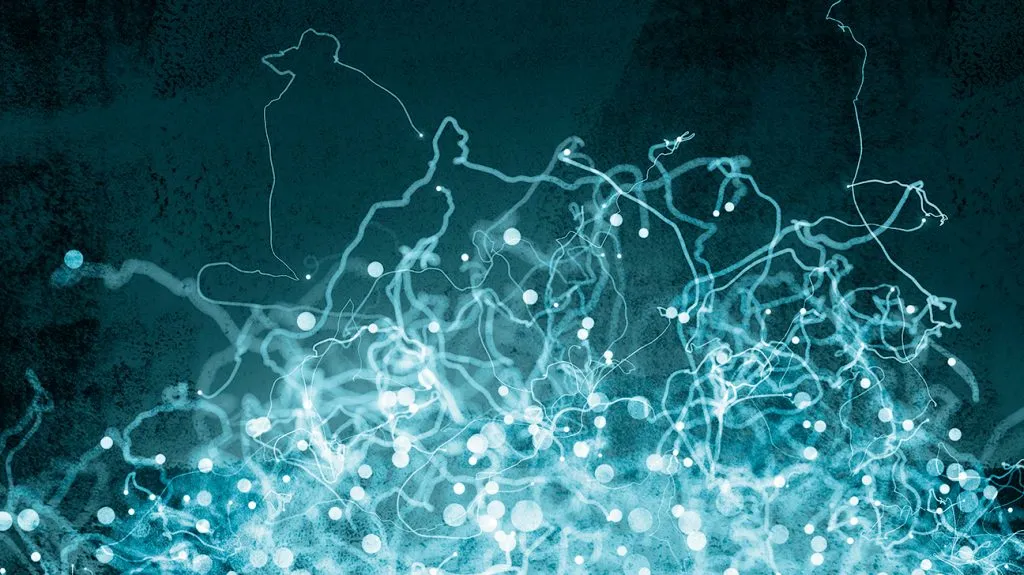
- Chronic stress and depression are known to reduce the number of nerve connections in the prefrontal cortex of the brain.
- Drugs with rapid antidepressant effects, including ketamine and classic psychedelics such as psilocybin, may work by promoting the growth of new nerve connections.
- A new study in living mice found that a single dose of psilocybin increased the density and size of nerve protrusions called dendritic spines in the rodents’ prefrontal cortices.
- The changes occurred within 24 hours and lasted at least 1 month.
Classic psychedelics such as psilocybin, the psychoactive component of “magic mushrooms,” produce a temporary altered state of consciousness that affects perception, thinking, and mood.
Researchers have been exploring their potential for treating a wide range of psychiatric disorders, including addiction, post-traumatic stress disorder, and depression.
Small, preliminary trials of psilocybin for treatment-resistant depression were promising enough for the Food and Drug Administration (FDA) to give the drug a “breakthrough therapy” designation in 2019, allowing the initiation of multisite clinical trials.
Psychedelics may enhance the brain’s capacity for change, or “plasticity,” in response to adversity. This, in turn, may open a window of opportunity for healing through psychotherapy.
How the drugs change nerve cells, or neurons, in the brain to make increased psychological and behavioral plasticity possible has been unclear, however.
In animal models, chronic stress reduces the number of cell structures called synapses, which transmit signals between nerves, in the frontal cortex.
ResearchTrusted Source also suggests that people with depression have fewer of these connections in the equivalent region of their brains.
Drugs with rapid antidepressant effects, such as ketamine and classic psychedelics, may help reverseTrusted Source these changes.
For the first time in living animals, scientists have now tracked the growth of dendritic spines, which are neuronal protrusions that end in synapses, in response to psilocybin.
The researchers used a laser imaging technique called two-photon microscopy to monitor potential changes in the medial frontal cortices of mice.
They found that within just 24 hours, a single dose of the drug boosted the number of spines and their size in this part of the brain. The changes lasted for at least 1 month.
The research, from scientists at Yale University School of Medicine, in New Haven, CT, has been published in the journal NeuronTrusted Source.
“We not only saw a 10% increase in the number of neuronal connections, but also, they were on average about 10% larger, so the connections were stronger, as well,” says senior author Alex Kwan, Ph.D., an associate professor of psychiatry and neuroscience.
In addition, the drug increased excitatory nerve signaling in the animals’ brains 24 hours after treatment. It also improved their performance on a standard test of stress-related behavior.
“It was a real surprise to see such enduring changes from just one dose of psilocybin,” Prof. Kwan says. “These new connections may be the structural changes the brain uses to store new experiences.”
The authors speculate that other drugs with rapid antidepressant effects may cause similarly fast and persistent “synaptic rewiring” of the brain.
They note that the timing of the changes they saw with psilocybin match those with ketamine, which also provokes a rapid increase in the number of dendritic spines in the frontal cortex.
Their research raises the intriguing possibility that scientists may be able to create drugs that promote synaptic rewiring without causing consciousness-altering effects, such as hallucinations.
In one experiment, the researchers gave the mice a drug called ketanserin, which blocks some of the 5-HT2A subtype of serotonin receptors to which psilocybin binds.
5-HT2A receptors are responsible for the profound changes in consciousness that classic psychedelics, such as LSD, DMT, and psilocybin, provoke.
Ketanserin prevented head twitches in these mice, a behavioral tic that psychedelic researchers use as an indication of consciousness-altering effects in the animals.
But psilocybin still appeared to increase synaptic plasticity in the mice, even though their 5-HT2A receptors were partially blocked. However, the results were not statistically significant.
“What the ketanserin experiment suggests is that the psychedelic and plasticity-promoting effects may be dissociable. That is, at least in mice, we can block the receptors responsible for psychedelic experience, and yet still see the plasticity effects,” Prof. Kwan told Medical News Today.
“If this finding translates to humans, then it hints at the possibility of new psychedelic analogs [structurally similar drugs] that are non-hallucinogenic but may still be effective for treating depression,” he added.
Other researchers are working toward developing non-hallucinogenic versions of psychedelics such as ibogaine for treating psychiatric disorders.
Prof. Kwan noted that psilocin, the breakdown product of psilocybin that binds to 5-HT2A receptors, also binds to other serotonin receptors in the brain.
“So it is possible that other serotonin receptor subtypes mediate the observed plasticity,” he told MNT.
“We need more work in the lab to tease out the receptor subtypes,” Prof. Kwan explained. “That’s what we want to do next.”
 English
English
 Français
Français

Thanks for sharing. I read many of your blog posts, cool, your blog is very good.
Great article and right to the point. I don’t
know if this is really the best place to ask but do you people have any ideea
where to get some professional writers? Thanks in advance 🙂 Escape rooms hub
I like this blog very much, Its a real nice spot to read and incur info.!
I don’t think the title of your article matches the content lol. Just kidding, mainly because I had some doubts after reading the article.
Your point of view caught my eye and was very interesting. Thanks. I have a question for you.
Hi there,
We run a YouTube growth service, which increases your number of subscribers both safely and practically.
We go beyond just subscriber numbers. We focus on attracting viewers genuinely interested in your niche, leading to long-term engagement with your content. Our approach leverages optimization, community building, and content promotion for sustainable growth, not quick fixes. Additionally, a dedicated team analyzes your channel and creates a personalized plan to unlock your full potential, all without relying on bots.
Our packages start from just $60 (USD) per month.
Would this be of interest?
Kind Regards,
Felicity
Unsubscribe: https://removeme.click/yt/unsubscribe.php?d=psilocybecubensis.ca
Have you seen a great feature or an entire website design that you love and wish that you could have for your business?
We can make it happen and at wholesale rates.
Why pay $50+ per hour for web development work,
when you can get higher quality results AT LESS THAN HALF THE COST?
We are a FULL SERVICE, USA managed web development agency offering wholesale pricing.
No job too big or small. Test us out to see our value.
Use the link in my signature, for a quick turn around quote.
Kristine Avocet
Senior Web Specialist
Fusion Web Experts
186 Daniel Island Drive
Daniel Island, SC 29492
http://www.fusionwebexperts.tech
I’m impressed, I must say. Seldom do I come across a blog that’s equally educative and entertaining, and without a doubt, you’ve hit the nail on the head. The issue is an issue that not enough men and women are speaking intelligently about. I’m very happy I stumbled across this during my hunt for something regarding this.